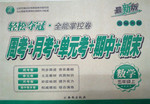题目内容
You must give up______. It’s bad for your health.
- A.smoking
- B.smoke
- C.to smoke
试题分析:根据语境可知此句考查的是固定句型结构give up doing sth表示放弃做某事。此句的含义是你必须戒烟了,吸烟有害健康。故选A。
考点:固定短语
点评:对于固定句型,需要在平时的学习中强化记忆,熟练掌握其用法。尤其是动词的非谓语形式是考查的重点。熟练并准确的掌握他们的结构可以提高做题的效率。

 轻松夺冠全能掌控卷系列答案
轻松夺冠全能掌控卷系列答案A: 1
B: Yes, please. 2 But it’s not on this shelf.
A: Let me find it on the computer first. 3
B: The Sound of Music.
A: Here it is. It’s on that shelf. Let me get it you.
B: Thank you 4
A: 3 days. You must keep it well. 5
B: I know. Thank you. Bye.
A: Bye.
| A. And please return it on time. B. I’m looking for a book. C. I want to borrow a DVD. D. How long can I keep it? E. Can I help you? F. Can you help me, please. G. What’s the name of the DVD? |
从方框中选择适当的选项补全对话(其中右两项是多余的)
| A. You can look for it in your bedroom. B.But where is my pencil? C. You must look after your things well. D.But where are my‘books? E. Thank you,mom. F.Is it on your desk? G.Here is my picture. |
B: Oh, yes, mom. 【小题1】 I can’t find it.
A: 【小题2】___
B: No, it isn’t there.
A: Is it in your backpack?
B: No, it isn’t.
A: 【小题3】____
B: OK. Ah, it is here. It is under my desk.
A: 【小题4】___
R; All right_ 【小题5】
请先阅读下面短文,掌握其大意,然后根据短文内容从下面方框的七个选项中,选择五个
还原到文中,使短文意思通顺、结构完整,并在答题卷上将其序号涂黑。(每小题2 分)
In Thailand, people do not eat with chopsticks, like in China, Japan, and Korea. They use spoons and forks. 1.____. Because most food is already cut. If you need to cut things use the side of your spoon . 2._____. If you are right-handed, keep the spoon in your right hand and the fork in your left hand.
3.______. The rice is not on the same plate with the other food. It is not necessary to finish all you rice or all your food. It is good to leave a little on your plate. If you eat anything, it means you want more.
4.______. The host(主人)will ask you two or three times if you want more food . It is the same with whatever you are drinking. During the meal, never empty your cup or glass. When it is less than half full, your host or neighbor will fill it again. 5.______. Always refill(再加满) your neighbor’s glass. This means that you must keep an eye on your neighbor’s glass all through the meal.
|
A. They never use knives B. Never fill your own glass C. People always offer you more food D. Remember to fill your bowl in time E. People often eat from the same bowl F. The spoon is more important than the fork G. People usually have rice in a different bowl |
